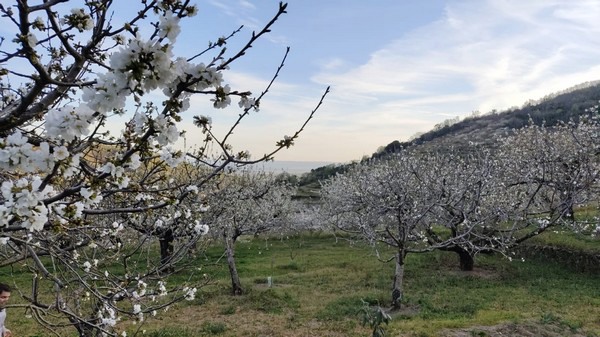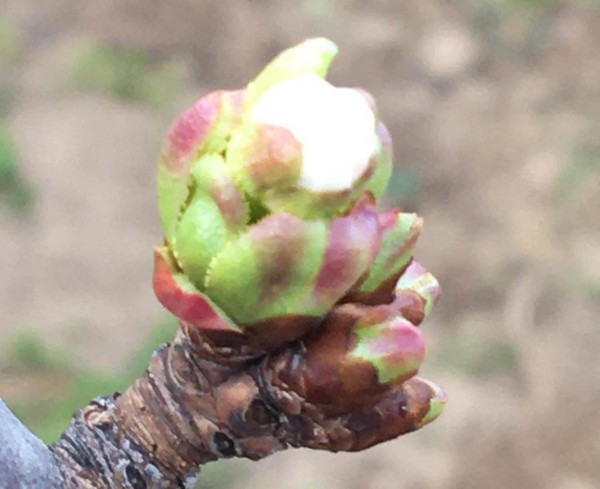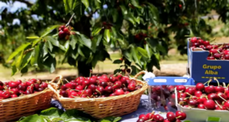The cherry campaign in Extremadura will start later this year, since the cold recorded in January and February, which was otherwise necessary for the proper awakening of the trees, delayed the bloom. "Although everything can still change, the arrival of the first fruit is expected to be delayed by between a week and 10 days compared to last year. We should, in any case, have cherries by the end of April/beginning of May, and we expect to have significant volumes by around 10-15 May," said Alberto Serrano de la Calle, of Grupo Alba.

"The weather has so far been ideal for a good bloom, pollination and fruit setting, but we have to bear in mind that open ground fruit is still subject to the weather conditions and, if May rains occur, the whole season could be brought to a halt in two weeks. We like to be realistic but also optimistic, and although everything is up in the air, it looks like we could have a good production."

The farms that produce the cherries and picotas marketed by Grupo Alba in supermarkets and traditional markets across Europe are located in the north of Cáceres, in the famous Jerte Valley, but also in adjacent valleys, such as La Vera, Ambroz and Las Hurdes.
"We complement our sales with the cherries produced in Aragon by Fruit Luxury, managed by Javier de Pablo, with whom we have established a very interesting partnership. In total, we market between 4,000 and 5,000 tons of fruit each season, with 80-85% corresponding to cherries and another 15-20% to picotas."
"We expect, as always, to see a very good demand for cherries"
Production and trade figures confirm that, for Spanish consumers, cherries remain a seasonal product. Data from 2021, the latest shared by Faostat, show that the Spanish cherry production amounted to 125,810 tons. Of this, almost 40,700 were exported (32.3% of the total), while imports barely exceeded 2,200 tons. In other words, imports didn't even account for 1.8% of the cherries harvested in the country.
"In producing countries and also surplus in cherries, such as Spain, the tradition of consumption is limited to summer fruit," Alberto remarks. "In those with small production, they are more accustomed to consumption in general, to having product of any origin and at any date. That is why, for example, it is easier to have a significant consumption of off-season cherries in the United Kingdom than in Spain".
“In cherry-producing countries with surpluses in the supply, consumption is usually limited to the summer season," said Alberto. "In those with a small production, they are more used to having products of any origin at any date. That is why, for example, it is easier to reach significant consumption levels of off-season cherries in the United Kingdom than in Spain."
"In fact, the Spanish import of cherries is limited to a very specific period of time, namely Christmas, and although the supply seems to be increasing, consumption remains relatively limited." Precisely the fact that the campaign takes place within a clearly defined period of time makes it possible to foresee a good commercial campaign, despite the uncertainty that there is in general about consumption.
"The macroeconomic situation has inevitably had an impact on the microeconomics of each family, but cherries are still in great demand. It is a fruit that does not need to be peeled, it is easily consumed and it is very attractive. It is true that our sector had not been hit by such great uncertainty and rising costs for a long time, and we do not know to what extent consumption may be retracted."

"What is going to happen remains to be seen. We'll need to lower our costs a lot to ensure consumer prices remain at values considered normal by regular consumers. In any case, we are expecting to see a very good demand for cherries."

For more information:
Grupo Alba
Ctra. Circunvalación Ronda Sur, Km 5
10600 Plasencia, Cáceres. Spain
Tel.: +34 927 427 054
info@grupoalba.es
https://grupoalba.es
